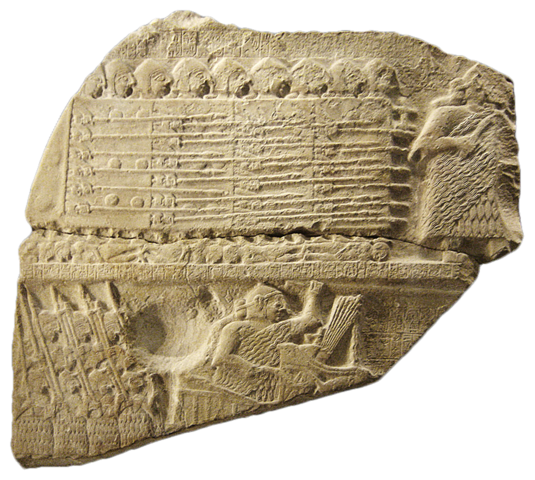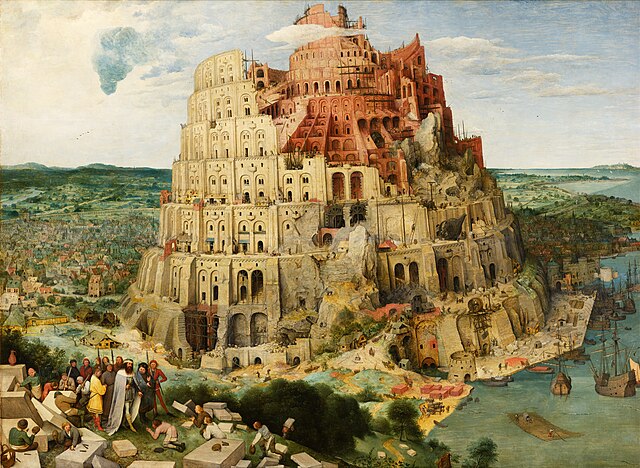Ancient and modern: making 4,000-year-old music with a 21st-century twist

Asked if she fancied making ‘extreme early music’, Stef Conner couldn’t resist. Little did she realise how extreme. She explains how she has breathed life into a 4,000-year-old language
Read more here.
How India changed the English language
For hundreds of years, words have flowed along the routes of trade and empire. Rahul Verma follows some of their remarkable journeys.
Read more here.
Lectures and haircut

Table Hill
Here’s an update about what I’ve been doing lately. First of all, what I haven’t been doing lately is writing, I’m afraid. 🙁 I’m stuck in the middle of my latest children’s book and so far I haven’t been able to get unstuck. I’m looking forward to getting some help from my sister but at the moment she’s too busy with work and her studies to be of any help.
So what I have been up to lately is mainly going to lectures. Usually, I try to go with either my mother or my sister, but so far, they haven’t had time or felt up to it so I’ve been going alone.
The first one was about this town and surrounding area during a time or rather times of unrest (ie war), back in the 17th, 18th and early 19th century. It was interesting, except for the fact that the lecturer (the head of the museum) kept referring to sources for genealogists. which my family and I are, but at the times the lecture referred to no one in our family lived around here, so I always feel a little bored when that comes up. Anyway, I’d already heard a little about this in an earlier lecture by the same man.
At the end of the lecture I went up to ask the man about something I’d heard of before. Some of you may remember that my sister and went on a guided tour of the cellars underneath the ‘Residence’ of the ‘governor’ (not sure of the exact translation of the Swedish term). Anyway, that’s about the oldest parts left of this town. Except for the rumoured baking ovens beneath the old prison, now converted into an exclusive apartment building. As it turned out, there are no ancient ovens left, but apparently there are some vaults or a vault anyway, where the ovens used to be. The man quite decently offered to show it or them to me, since he lives in the building. Unfortunately, I lost his card, but my sister works in the same building and knows him, even though her archive doesn’t have anything directly to do with the museum’s archives so she can get in touch with him. I hope we can both go and take a quick look at the vault. It may not sound very exciting, and the man himself didn’t seem to think so but again, we’re talking about some of the oldest parts of this town, so I’d still like to have a look. I’ll post about it later if I do get to go.
The second lecture was about the Swedish language and it was quite interesting, despite the fact that the woman who held it, a professor of Swedish at the University of Gothenburg, and the Dean (I think that’s the word) of the local college, was really proud of herself and her ancestry and never let a moment go by without pointing out what an illustrious ancestry she had or how brilliant she is to have been appointed to many prestigious councils and other exclusive academic groups. Apparently she didn’t like my questions so she tried to silence me by being condescending, while flattering an older man in the audience (entirely made up of retired people, except for a guy who seemed to be there as the driver of his grandfather or someone) for his questions that chimed in well with her narrative. Oh, well, like I said, it was interesting, but I didn’t like that woman.
Finally, I went to listen to someone give a talk about the ancient mythology of the Table ‘mountains’/hills around here. Some people are of the opinion that all our ancient mythology can be traced to them, or rather one of them in particular, one that is right nearby (see image above). The whole thing was entertaining, and since the subject refers to ancient times (more or less – in the Mediterranean, they’d refer to this time period as ‘Late Ancient Times or Early Mediaeval) anything might be true. However, this recently retired man, not sure about his actual qualifications, who used to be the head of another museum nearby, was so completely convinced of his own ideas, it was a little scary. He made little half-hearted jokes about how he ‘might’ be wrong about a few little things in his research, but his facial expression and tone hinted that he didn’t think so, at all. Despite that, it was all quite fun to listen to and made sense up to a point. Our Nordic mythology might have originated here, it’s a guess as good as any and like I said, some of his arguments made a bit of sense.
Other than these lectures, all I’ve done is have a much needed haircut. I might post a photo later on. Anyway, any readers I might have, will surely have tired of my ramblings long ago. 🙂
A Double Negative Is Not Always UnOK
Read more here.
10 Tips For Learning Any Language
When it comes to learning a language, some people feel like it’s an innate ability: they either have it or they don’t. However, in most areas around the world, learning 2-4 languages is just normal. It’s not that these people have better brains, it’s that for them it’s not geographically optional. Anyone at any age can learn a new language, and if you’re reading this, chances are you’ve been toying with the idea. So roll up your sleeves, grab some coffee and let’s jump into what you need to know to pick up any language.
Read more here.
I’m still trying to decide what new language I want to learn or if I should just stick to my ‘old’ languages and try to get better at them. In any case I find it really hard to ‘immerse’ myself in any language except English (and my own Swedish). There’s so little to choose from or at least so little that I can find.
Indian village where people speak in Sanskrit
A village in the southern state of Karnataka where most residents speak Sanskrit is in focus at a time when the Indian government’s insistence on promoting the ancient language has sparked a debate over the role it plays in the lives of people in the country now.
Read more here.
Why the historical perspective on language matters
The modern world is full of tensions and conflicts about language. Some people worry that their language is being debased, depraved, and despoiled by the sloppiness of e-mails and text messages.
Others are upset that an influx of words from another language – usually English – is radically changing their language. Many express fears of minority languages dying out altogether as their speakers shift to using English.
Read more here.
Hi-tech schools rescuing an ancient language
Technology and education have a long, complicated and sometimes exaggerated relationship
Read more here.
Speaking More Than One Language Could Sharpen Your Brain

The Tower of Babel
Speaking more than one language does the brain some good. A recent study found that bilingual speakers may actually process information more efficiently than single-language speakers.
Read more here.


